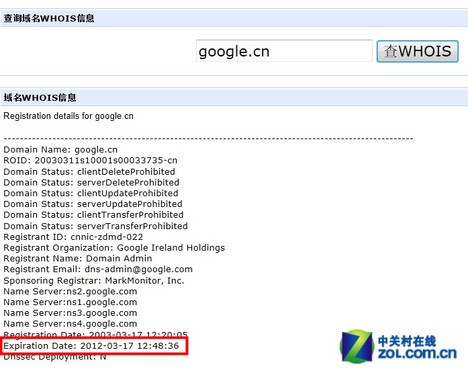14 Sep 2011 | Index Index, Middle East and North Africa, minipost
Egypt’s SCAF announced on Saturday it will enforce the Emergency Law, which allows civilians, including journalists, to be tried in state security courts and detained indefinitely. The announcement came despite the military’s commitment to annul the law by September, a core demand of the revolution. Under the law, security officials would be allowed to take “legal procedures” to suppress acts of “thuggery” and may use “all legal powers to safeguard the country’s security”. Meanwhile, Al-Jazeera reported that Egyptian police raided the offices of a broadcaster it is affiliated with on Sunday, shutting down their live, round-the-clock broadcasts from Cairo.
13 Sep 2011 | Asia and Pacific, China
Last week, a Google spokesperson announced that Google.cn’s Chinese Internet Content Provider (ICP) licence had been renewed to 2012.
When Google stopped censoring search result in 2010 and left mainland China to set up in Hong Kong, Google’s ICP renewal by the Chinese government looked doubtful. But to the surprise of many, in July 2010 its licence was successfully renewed. This year, after Google’s announcement, Chinese journalists looked at WHOIS, a Chinese website for checking domain name information noticed that the licence has been extended to March 17 2012.

Experts in China, particularly state media commentators, suggest it is likely Google managed to wrangle this renewal through some sort of compromise. International Finance News, a newspaper run by the state mouthpiece the People’s Daily, suggested this is a sure sign that Google does not want to leave the biggest internet market in the world, and was willing to compromise. According to the local technology provisions issued on 26 August 2011, foreign companies cannot evade censorship by any method, without their government contract being terminated.
In another development, today Google launched Google Shihui, a group buying discount site under its Chinese platform Google.cn. Mark Natkin, managing director of Beijing-based consulting firm Marbridge was quoted in PC World saying that “[Shihui is] a fairly safe neutral area of business in which Google can participate without risking as much.” But Google’s insistence on staying in the Chinese market will mean that it will face continued, and possibly tougher, censorship from the government in the future.
13 Sep 2011 | Iran, Middle East and North Africa
Tomorrow, the Cinema Office of Iran’s Ministry of Culture and Islamic Guidance must decide on the country’s submission for the Best Foreign Language Film for the 2012 Oscars. The obvious choice would be A Separation, director Asghar Frahadi’s latest film that screened worldwide this year with overwhelming success. In An Iranian Movie ‘Masterpiece’…And why it may not make it to the Oscars, Ali Chenar presents the convoluted issues and politics at play, exposing a whole new dimension to censorship of film in Iran.
Of course the impact on any artist attempting to pursue their work in this industry is manifold. This month saw the US release of the controversial Circumstance (winner of Sundance Audience Award 2011), a film exploring lesbian love in Iran, and director Maryam Keshavarz felt compelled to make a “goodbye” trip to the country as soon as the work was complete, on the clear understanding that she would become a target of the regime once it was released. The official trailer ends with “Let no love fall victim to circumstance. Freedom is a human right.” And circumstance is exactly what filmmakers must constantly overcome — in the choices that they make and the reality that ensues.
Award-winning director Jafar Panahi under house arrest since December 2010, with an imposed 20-year ban on making films, has bravely played with the limitations of this ban by collaborating on This Is Not A Film, a film poignantly showing the banality of Panahi’s life under house arrest. The film was smuggled out of Iran on a USB pen and screened at Cannes this year. The reels keep turning.
12 Sep 2011 | Index Index, minipost
Bangladesh‘s government has passed a new broadcast law which will censor TV programmes and movies. The law, which will go into effect in three months’ time, prevents the broadcasting of content depicting non-Muslim holidays, as well as “kiss scenes” in films on foreign channels.

